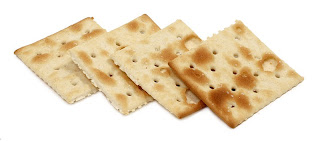1. In general, the darker the honey the higher the antioxidant content. The exceptions to this rule are light clover honey (high in antioxidants) and dark mesquite honey (low in antioxidants).
2. Bees work really really hard to make it. According to 101 Foods That Could Save Your Life by David Grotto, "bees travel an average of 55,000 miles and need to tap over two million flowers just to bring you one pound of honey."
3. Honey should not be fed to babies. Do not feed honey to children under the age of one year because infants lack the ability to kill botulism spores that lie within.
4. Honey may have powerful wound-healing properties. According to 101 Foods That Could Save Your Life by David Grotto, "A special preparation of honey called Medihoney, known for its high antibacterial properties, was used in treating wound care in Children's Hospital in Bonn, Germany, for three years. Researchers observed significant reductions in even the most resistant wound infections as a result of using the honey preparation."
5. Pasteurized and processed honey has fewer nutrients. Many of the health-promoting nutrients and enzymes are destroyed by high-heat processing. Seek out raw, unfiltered honey to get the most health benefits.
6. Consuming local honey is thought to help to relieve allergies. The idea is that you will gradually build up a resistance to pollen.
7. Honey masks may help treat acne. Honey is a natural antiseptic and may help to reduce breakouts caused by bacteria. Check out this Anti Acne Honey Cinnamon Mask Tutorial or The Best Natural Face Scrub For Winter!
We hope you enjoyed learning about honey! Don't forget to follow Eat Groovy on Twitter (@EatGroovy) and Pinterest (http://www.pinterest.com/eatgroovy/) and subscribe via email here!



































